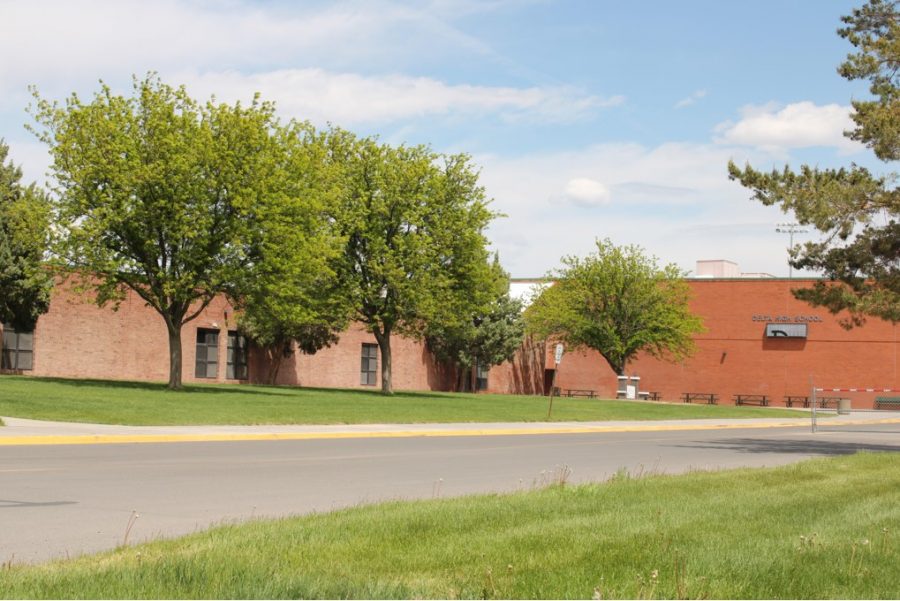Comprehensive Human Sexuality Education:
How does Delta High School feel about it?
Delta High School students and faculty shared their thoughts on House Bill 19-1032 and the Comprehensive Human Sexuality Education (CHSE) curriculum. Regardless of the decision, the county will always be “good ol’ Delta.”
May 18, 2021
Delta County School District presented the Comprehensive Human Sexuality Education (CHSE) plan to the community on April 15th, and 300-400 protesters held signs and stood outside the district building to oppose the plan.
Students and teachers in Delta High School voiced their own opinions on the plan and how it may affect Delta County. “It’s not a requirement. You can adopt it or you can not in the state of Colorado,” a Delta High School teacher said. “The good thing about it is that it would [make sure] that all the schools in the district are actually teaching sexual education. The negative thing about comprehensive sexual education is that, if it is adopted, you take everything.”
The school districts that adopt House Bill 19-1032 receive a “comprehensive list” of subjects that must be taught every year. The bill stresses age appropriate sexual education, and does not have the ‘birds and the bees’ talk until the generally accepted age group: fifth graders. The protesters believed that the sexual education was not age appropriate and although parents can opt their children out of the programs, they did not agree with the contents of the curriculum.
“I believe that the bill is incorrect,” Royce Barrios, junior, said. “It’s gonna affect our community very poorly because of the way that many people around here were raised, and their beliefs and moral values.”
Protestors also discussed that they do not agree with the program that explains sexual orientation to a middle school audience. Proponents for the CHSE curriculum want to prevent students from finding information through unconventional and untrustworthy sources like pornography or the internet.
Students who are part of the LGBT+ community, like Dax Sanville, a junior, struggle to find appropriate sexual education. “I hope it will open peoples’ minds up about who [we] really are,” Sanville said. “We don’t exactly have anything teaching us about the LGBT+ [community] and not have the influence of [our] parents or religion.”
Although the protest is mostly religiously motivated, district and school faculty are aware of the misconceptions that spread in the community, and hope to clear the air.
Oaklee Hughes, junior, agrees with proponents of the bill because of the gradual growing importance of education topics as students advance grade levels, rather than teaching kindergarten students all topics.“I think it is really good,” Hughes said, “because it is giving the right amount to the appropriate age. You learn what you need to, but not too much to where it is [overwhelming] the children.”
Proponents also stress that not all children have parents who can sit down with them and correctly teach them sexual education. Rosie Johnson, Vice Principal of Delta High School, agrees with that detail.
“I do think it’s an important part of kids’ education,” Johnson said. “And I understand that some people think that should be taught at home. The problem is not everybody gets that at home and not everybody sees, for example, healthy relationships at home and understands what that really looks like.”
Delta County Schools will discuss the decision of whether or not to implement the CHSE curriculum. In the meantime, the topic is still debated whether a rural community should offer twelve years of education about a sensitive subject. This Thursday at 6:00 PM, more community members and administrators will discuss the curriculum again at Delta County School District.
“I think that every high school, at least, and middle school should be teaching sex ed in some capacity,” a teacher said. “I don’t necessarily think that we have to adopt comprehensive sex ed if our school and community [decides] that it is not the best fit, but I think that something needs to be adopted.”
